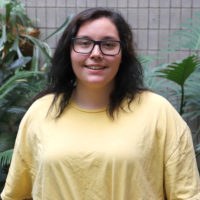
“A diverse pollen diet increases Bombus impatiens microcolony development and performance”
Project Summary:
Bumble bees are polylectic and provide important pollination services to many crop plants. Managed bumble bee colony development and foraging is reliant on pollen diet. Bombus impatiens, a bumble bee native to the eastern United States, is one of the only managed bumble bees commercially available in the U.S. Agricultural simplification constrains the diet breadth of both wild and managed bees. Thus the purpose of this research was to look at how differing pollen diets impact Bombus impatiens colony fitness and performance. To address this question, we created B. impatiens queenless microcolonies. There were five diet treatments consisting of four monofloral pollens – (1) sunflower, (2) buckwheat, (3) clover, and (4) canola – and one diverse floral pollen comprising a homogenous tetra floral blend of the aforementioned single pollen diets. In order to quantify microcolony pollination performance, the microcolonies underwent foraging trials on flowering tomatillo plants. We found that pollen diet affected the microcolony development metric of weight gain depending on how long the microcolony had been assimilated to that diet. There was no effect of diet treatment on time spent foraging. There was also no main effect of diet treatment on the number of pollen grains deposited on the stigma. However, there was a significant interaction between diet treatment and visitation time; the effect of the time bees spent foraging on pollen deposition varied between diet treatment groups. This has potential implications for informing the pollen diets of managed bees to increase their pollination efficiency as well as for planning agri environmental schemes so as to maximize angiosperm reproductive output. Providing alternative floral resources could help mitigate the potential harmful effects of a monofloral diet on bumblebees.
My Experience:
I am currently studying Environmental Science and Sustainability at Cornell with a concentration in Environmental Biology and Applied Ecology. My experience with the Thaler Lab has introduced me to a myriad of laboratory and field skills, including: identifying local bees to genus level, quantifying insect plant damage, collecting pollen and nectar, using a refractometer, and micropipetting. The lab dynamic has truly allowed me to gain competency in ecological lab skills and has shown me the significance of collaboration. I was able to have autonomy over my project while still receiving essential guidance from my mentor, Julie Davis, and from my PI, Jennifer Thaler. The BTI summer program as a whole has been an invaluable experience; from the seminars to the networking lunches, I feel a lot more solidified in my educational goals and career path.
